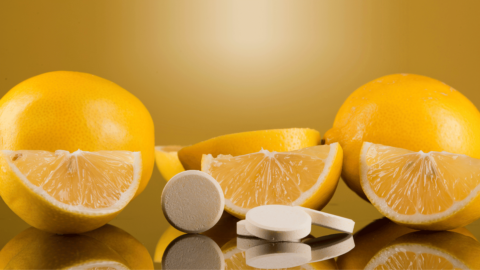For people managing opioid use disorder with Suboxone, withdrawal symptoms can still be a concern, especially during the tapering process or when adjusting doses. In recent years, Vitamin C has been discussed as a potential aid in reducing withdrawal symptoms, sparking curiosity about its role in the recovery journey.
Does Vitamin C really help ease withdrawal symptoms while on Suboxone, or is this another overhyped remedy? Let’s explore the science, how Vitamin C interacts with Suboxone, and what steps you can take to manage withdrawal effectively.
Understanding Suboxone and Withdrawal
Suboxone, a combination of buprenorphine and naloxone, is a key tool in Medication-Assisted Treatment (MAT) for opioid use disorder. It reduces cravings and withdrawal symptoms by partially activating opioid receptors in the brain.
However, as patients taper off Suboxone or adjust doses, mild withdrawal symptoms like anxiety, restlessness, and muscle aches can still occur. Managing these symptoms effectively is crucial for staying on track in recovery.
The Role of Vitamin C in Managing Withdrawal
What Does Vitamin C Do?
Vitamin C, or ascorbic acid, is a powerful antioxidant known for its role in:
- Boosting the immune system.
- Reducing inflammation.
- Supporting overall health and well-being.
Recently, Vitamin C has been explored for its potential role in reducing opioid withdrawal symptoms. Research suggests that it may help:
- Alleviate Restlessness and Pain: Vitamin C has anti-inflammatory properties that might ease physical discomfort.
- Support Neurotransmitter Function: Some studies indicate that Vitamin C could modulate neurotransmitter systems affected by opioid use, reducing withdrawal severity.
What Does the Research Say?
Research into the use of vitamin C for alleviating opioid withdrawal symptoms has yielded promising, yet preliminary, results.
Human trials, though limited, have explored vitamin C’s efficacy in easing withdrawal:
- Haight-Ashbury Free Clinic Study: A trial involving individuals detoxifying from stimulants and opioids found that daily oral doses of 1 to 3 grams of buffered vitamin C significantly alleviated acute withdrawal symptoms. Notably, one-third of participants reported a 70% or greater reduction in symptoms.
- Vitamin C and E Supplementation: Another study administered high doses of vitamin C (300 mg per kilogram of body weight) and vitamin E (5 mg/kg) daily for at least four weeks to individuals undergoing heroin withdrawal. Approximately 57% of participants experienced significant reductions in withdrawal symptoms, compared to only 7% in the control group receiving standard medications.
Considerations
While these findings are encouraging, it’s important to note:
- Limited Scope: The studies conducted thus far have involved small sample sizes, limiting the generalizability of the results.
- Lack of Standardization: There is no standardized dosing regimen for vitamin C in the context of opioid withdrawal, and optimal dosages remain undetermined.
- Potential Side Effects: High doses of vitamin C can cause gastrointestinal discomfort, including diarrhea and nausea.
Given these factors, further research is necessary to establish definitive conclusions regarding vitamin C’s role in opioid withdrawal management.
Practical Tips for Managing Suboxone Withdrawal Symptoms
While vitamin C may offer promise in reducing withdrawal discomfort, a comprehensive approach often works best. Here are additional strategies to support your recovery:
1. Stay Hydrated
Dehydration can worsen withdrawal symptoms like headaches, fatigue, and irritability. Drink plenty of water or electrolyte-rich beverages to stay hydrated.
2. Prioritize Nutrition
Eating nutrient-dense foods like lean proteins, whole grains, fruits, and vegetables can help restore energy and improve mood. Antioxidant-rich foods like berries, spinach, and citrus fruits may also reduce oxidative stress.
3. Exercise Regularly
Physical activity, even light exercise like walking or stretching, releases endorphins and improves sleep quality—both essential for managing withdrawal symptoms.
4. Practice Stress Management
Withdrawal can take a toll emotionally and physically. Mindfulness techniques such as meditation, deep breathing, or yoga can help calm your mind and reduce stress.
5. Follow Your Doctor’s Advice
Never stop or adjust Suboxone use without consulting your healthcare provider. A gradual taper, supervised by a doctor, minimizes withdrawal symptoms and ensures safety.
How QuickMD Can Help
Navigating Suboxone withdrawal can feel overwhelming, but you don’t have to go through it alone. QuickMD offers a range of services to make your recovery journey smoother and more manageable:
- Expert Guidance: Consult with licensed providers online for tailored advice on managing withdrawal symptoms, including dietary supplements like vitamin C.
- Medication Management: Get help with tapering your Suboxone dosage safely and effectively.
- Accessible Care: Schedule same-day virtual appointments from the comfort of your home.
FAQs About Suboxone Withdrawal and Vitamin C
Can Vitamin C alone reduce Suboxone withdrawal symptoms?
While some studies suggest Vitamin C may alleviate symptoms, it should be used alongside other treatments and under medical supervision.
What’s the recommended dose of Vitamin C for withdrawal?
There’s no standardized dose for managing withdrawal. Always consult with a healthcare provider before starting high-dose supplementation.
Is Suboxone withdrawal dangerous?
Suboxone withdrawal is typically less severe than withdrawal from full opioids but can still cause discomfort. Medical support is crucial to ensure a safe and manageable process.
How long does Suboxone withdrawal last?
Withdrawal symptoms can begin within 24-72 hours of the last dose and typically last for about a week, though some individuals may experience lingering symptoms.
Can QuickMD help with withdrawal management?
Yes! QuickMD offers expert care to manage withdrawal symptoms, adjust treatment plans, and provide guidance on safe supplementation or lifestyle changes.
Vitamin C for Withdrawal: The Bottom Line
Managing Suboxone withdrawal is a complex process that requires the right tools, strategies, and support. While Vitamin C shows potential in easing symptoms, it’s most effective when paired with a comprehensive treatment plan that includes medical guidance, proper nutrition, and stress management.
Schedule a consultation with QuickMD today and get personalized care to make your path to health and wellness smoother and more successful.




